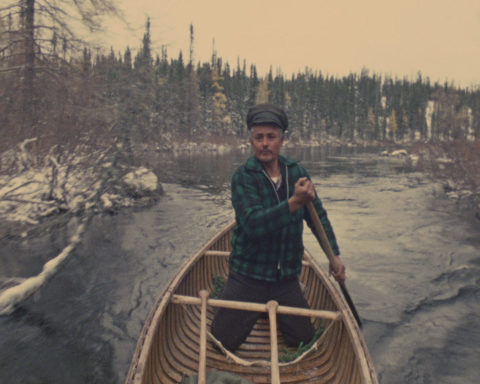Documentary
Edited by Julian Stallabrass as part of the series “Documents of Contemporary Art”
(Whitechapel Gallery and MIT Press 2013)
Documentary is a carefully curated mixture of previously published essays, extracts, interviews and commentary that sometimes engages directly in the artform, practices and politics of documentary cinema, but more often acts as a proto-documentary film discussion, offering ample space to discussions of photography and photojournalism. This was annoying to me at first, as I wanted more meaty missives on non-fiction film production, dissemination and reception, but once the cadence and logic of the mixture took shape, I relented to its rather unorthodox approach to documentary discourse.
It isn’t that the combination of the volume’s mostly short chapters, which range in date from 1928 to 2011, transgresses any codified rules of documentary book publishing, but moving from a Walter Benjamin extract (1928) to John Grierson (1946) to Jacques Rancière (2003) and Trinh T. Minh-ha (1990) in the space of 40-odd pages isn’t just unusual, it’s also a little jarring. While it would be predictable and passé to chastise a collection like this for who has been left out (there is always someone left out), my biggest problem with the book is that it comes across as more of a (proto-)doc-lit mixtape than a collection of works put into context and massaged into order by an attentive and guiding editor. Stallabrass does provide an introduction to the collection, but the eight sections found inside beg for some kind of contextual justification in order to make all the intriguing fragments come together for this reader.
Yet this unique assemblage is still a deserving publication for any documentary bookshelf. As far as mixtapes go this one maintains a proper historical tone, registering exemplary flourishes across decades, and it is a unique addition to existing literature because predictable essays like Carl Plantinga’s “What a Documentary Is, After All” are put in conversation with less likely fare such as Sartre’s “From One China to Another” and Butler’s “Torture and Ethics of Photography”. To shed light on the ways in which historic writings on ‘other’ professions and practices wonderfully resonate in a larger discussion around documentary film/filmmaking, consider this quote from Smith’s 1948 essay “Photographic Journalism”: “Those who believe that photographic reportage is ‘selective and objective, but cannot interpret the photographed subject matter,’ show a complete lack of understanding of the problems and the proper workings of this profession. The journalistic photographer can have no other than a personal approach; and it is impossible for him to be completely objective. Honest—yes. Objective—no.” Through readings like this we are reminded that debates around documentary cinema’s authenticity, subjectivity and, of course, ethics are robustly prefigured by discussions from another era, engaged with another related medium.
To summarize this collection’s focus and its contribution to contemporary documentary discourse, I would divide the book into four overlapping concerns: defining (or interpreting) documentary, documentary truths, documentary ethics and documentary practices. Concerning the latter, the book includes absorbing interviews with filmmakers like the director of the controversial Enjoy Poverty, Renzo Martens, and equally controversial Guatemalan artist Regina José Galindo, whose thoughts and reflections add flesh to the theoretical scaffolding assembled earlier in the book.
As a book whose authors are rigorously concerned with documentary origins, claims, territories and tensions (or contradictions), Documentary succeeds as an important curatorial intervention. There is nothing new in the content, of course, but drawing on so many previously separated threads is what makes this volume intriguing, useful and a sui generis work in the world of documentary literature, scholarship and discourse. And like all great essays, this collection creates more conundrums while approaching key questions. In that vein, I leave you with this final quote, from Minh-ha: “There is no such thing as documentary—whether the term designates a category of material, a genre, an approach or a set of techniques.”










